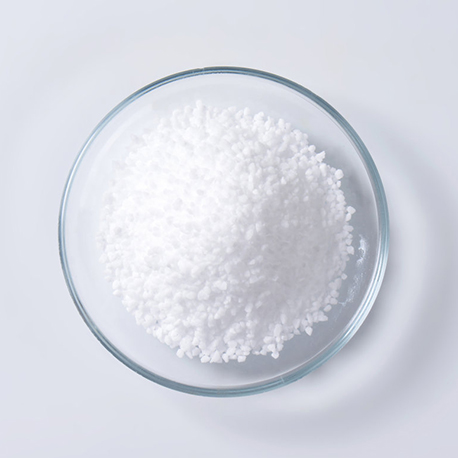
News
okt . 11, 2024 17:26 Back to list
Benefits of Fulvic Acid Fertilizers for Enhanced Plant Growth and Soil Health
The Benefits of Fulvic Acid Fertilizer Enhancing Soil Health and Crop Production
In recent years, the agricultural sector has witnessed a significant increase in the interest surrounding natural fertilizers. Among these, fulvic acid fertilizer has emerged as a powerful tool for improving soil health and enhancing crop production. Derived from the decomposition of organic matter, fulvic acid is a key component of humic substances found in soil. Its unique properties offer numerous benefits for both farmers and the environment.
What is Fulvic Acid?
Fulvic acid is a natural organic acid that plays a crucial role in enhancing soil structure and fertility. It originates from the breakdown of plant and animal material over thousands of years, resulting in a rich reservoir of nutrients that are vital for plant growth. Unlike other organic fertilizers, fulvic acid is water-soluble, making it easily absorbed by plants. This solubility allows it to effectively transport nutrients across cell membranes, ensuring that plants receive the essential minerals they need to thrive.
Enhancing Nutrient Uptake
One of the most significant advantages of fulvic acid fertilizer is its ability to enhance nutrient uptake in plants. It acts as a chelating agent, binding with essential elements such as iron, magnesium, and calcium, and allowing plants to absorb them more efficiently. This improved nutrient availability not only promotes healthy growth but also increases crop yields. In fields where fulvic acid has been applied, farmers often report better quality produce and higher market prices due to the enhanced nutritional content of their crops.
Improving Soil Structure
Fulvic acid also plays a vital role in improving soil structure. It helps to aggregate soil particles, promoting the development of a crumbly texture that improves aeration and water retention. This is particularly beneficial in sandy or clay-heavy soils, which can often be challenging for plant roots to penetrate. By enhancing soil structure, fulvic acid fertilizer encourages robust root development, leading to healthier plants that are more resistant to drought and other environmental stresses.
fulvic acid fertilizer

Promoting Microbial Activity
Another key benefit of fulvic acid is its positive impact on soil microbial activity. Healthy soil is teeming with beneficial microbes that contribute to nutrient cycling and disease suppression. Fulvic acid acts as a food source for these microorganisms, promoting their growth and activity. As microbial populations thrive, they help to break down organic matter, releasing additional nutrients that are crucial for plant growth. This dynamic creates a healthy ecosystem in the soil, leading to long-term fertility and sustainability.
Environmental Benefits
In addition to its agricultural advantages, fulvic acid fertilizer also supports environmental sustainability. It helps to reduce the need for chemical fertilizers, which can have detrimental effects on soil health and water quality. By promoting natural processes within the soil, fulvic acid contributes to a more eco-friendly approach to farming. Its application can lead to reduced soil erosion, improved water retention, and a decrease in chemical runoff, ultimately benefiting local ecosystems.
Application and Usage
Integrating fulvic acid fertilizer into farming practices is relatively straightforward. It can be applied alone or combined with other organic fertilizers to enhance their effectiveness. Farmers can use it in various forms, including liquid concentrates, dry granules, or as a component of compost. Because fulvic acid is compatible with most agricultural inputs, its flexibility makes it an ideal choice for a wide range of crops, from vegetables to grains.
Conclusion
Fulvic acid fertilizer represents a promising solution for challenges faced in modern agriculture. Its ability to enhance nutrient uptake, improve soil structure, promote microbial activity, and support environmental sustainability makes it an invaluable resource for farmers aiming to increase crop yields while minimizing their ecological footprint. As the agricultural sector continues to evolve, the adoption of natural fertilizers like fulvic acid will likely play a crucial role in the quest for sustainable farming practices that meet the demands of a growing global population. Embracing fulvic acid fertilizer could be a leap toward healthier soils and bountiful harvests for generations to come.
-
Polyaspartic Acid Salts in Agricultural Fertilizers: A Sustainable Solution
NewsJul.21,2025
-
OEM Chelating Agent Preservative Supplier & Manufacturer High-Quality Customized Solutions
NewsJul.08,2025
-
OEM Potassium Chelating Agent Manufacturer - Custom Potassium Oxalate & Citrate Solutions
NewsJul.08,2025
-
OEM Pentasodium DTPA Chelating Agent Supplier & Manufacturer High Purity & Cost-Effective Solutions
NewsJul.08,2025
-
High-Efficiency Chelated Trace Elements Fertilizer Bulk Supplier & Manufacturer Quotes
NewsJul.07,2025
-
High Quality K Formation for a Chelating Agent – Reliable Manufacturer & Supplier
NewsJul.07,2025
